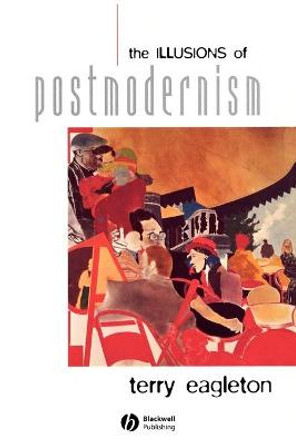Description
'Written in Eagleton's very readable, clear and witty style, this book may achieve the unthinkable: bridging the gap between academic High Thought and popular philosophy manuals.'
Slavoj Zi ek
'This is a fine book. It is hugely ambitious in its scope, develops an original thesis to illuminating effect and is written with a compelling passion and commitment.'
Peter R. Sedgwick, Cardiff University
'Written with Eagleton's usual wit, panache and uncanny ability to summarise and criticize otherwise complex philosophical positions ... this is an important book by a hugely important voice.'
Simon Critchley, The New School for Social Research
In this ambitious new book, Terry Eagleton, one of the world's greatest cultural theorists, turns his attention to the now much-discussed question of ethics. In a work full of rare insights into tragedy, politics, literature, morality and religion, Eagleton investigates ethical theories from Aristotle to Alain Badiou and Slavoj Zi ek, weighing the merits and deficiencies of each theory, and measuring them all against the 'richer' ethical resources of socialism and the Judaeo-Christian tradition. In a remarkably original move, he assigns each of the theories he examines to one or other of Jacques Lacan's three psychoanalytical categories of the Imaginary, the Symbolic and the Real, and shows how this can illuminate the strengths and weaknesses of an ethics of personal sympathy, an impersonal morality of obligation, and a morality based on death and transformation.
About the Author
Terry Eagleton is John Edward Taylor Professor of English Literature at the University of Manchester. His recent publications include How to Read a Poem (2006), The English Novel (2004), Sweet Violence: The Idea of the Tragic (2003), The Idea of Culture(2000), Scholars and Rebels in Nineteenth-Century Ireland (1999), and The Illusions of Postmodernism (1996), all published by Wiley-Blackwell.
Reviews
"In his inimitable way, Eagleton is helping to develop this intriguing scene, and further framings of his thought are keenly anticipated.." (New Left Review, July - August, 2010)
"Readers who know the writers being discussed will enjoy the book." (Choice, April 2009)
"Eagleton has laboured diligently in tracing the wellsprings of ethics across literature, philosophy, morality and religion. Trouble With Strangers is an engrossing book, peppered with remarkable insights into theory, philosophy and psychoanalysis." (Australian Book Review, March 2009)
"Eagleton is absolutely correct to ask why do we have 'trouble with strangers?' It is to ask, after all, how we might be able to recreate solidarity. And it is in pursuit of this answer that he examines the attempts of moral philosophers to give altruism a firm footing." (Culture Wars, March 2009)
"This difficult, highly abstract, yet extremely closely reasoned study touches on so many topics and ideas that the reader may come away from it wondering whether Eagleton has made a convincing argument for his main thesis which is that most ethical theories can be assigned to one of Jacques Lacans three psychoanalytical categories of the imaginary the symbolic and the Real or in some combination of the three." (Library Journal, December 2008)
"Confronted now with Eagleton's eighth book in 11 years ... One finds his trademark qualities in abundance: impishness, prodigious breadth of reading, a poacher's disregard of boundaries and of 'no trespassing' notices, sublime self-confidence, and an opening up of the heart to old allegiances as sudden as a blow to the chest." (Times Higher Education Supplement, December 2008)
Book Information
ISBN 9781405185721
Author Terry Eagleton
Format Paperback
Page Count 368
Imprint Wiley-Blackwell
Publisher John Wiley and Sons Ltd
Weight(grams) 499g
Dimensions(mm) 229mm * 150mm * 18mm







